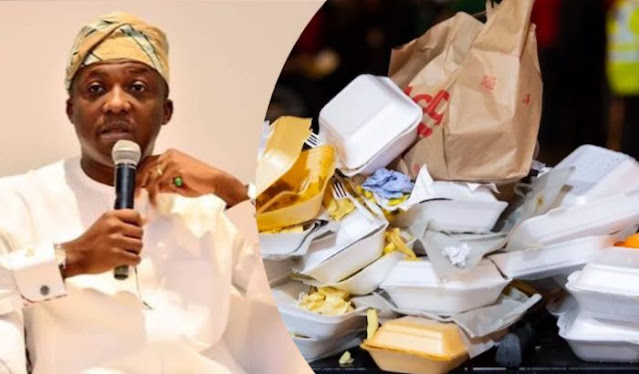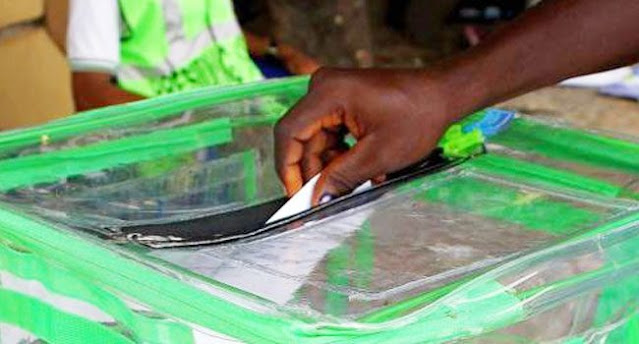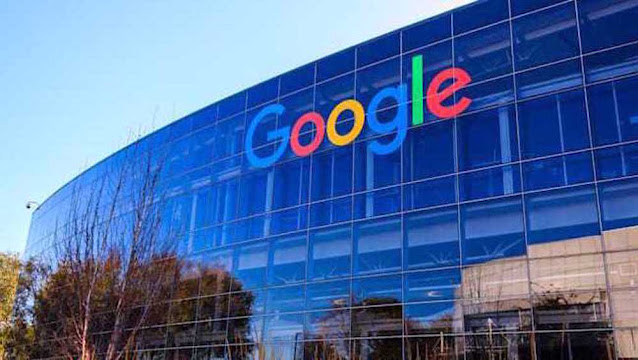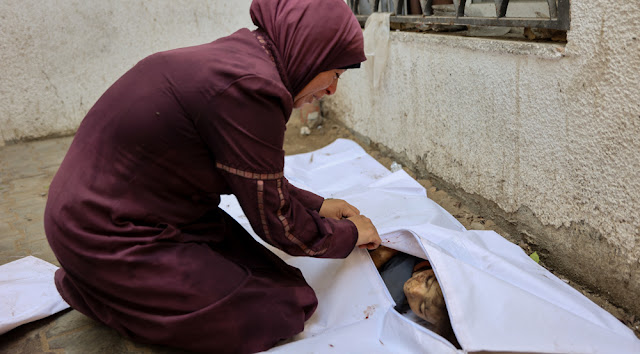In a decisive move to combat the growing menace of plastic pollution, the Lagos State Government has escalated its enforcement of a ban on single-use plastics (SUPs), seizing prohibited items from supermarkets across the state. On September 3, 2025, enforcement teams, led by the Lagos State Environmental Protection Agency (LASEPA) and supported by the Ministry of Environment and Water Resources, conducted raids on several supermarkets, confiscating items such as plastic cups, straws, and Styrofoam containers. The operation, announced by Commissioner for Environment and Water Resources Tokunbo Wahab via a video posted on his X handle, marks a significant escalation in Lagos’ efforts to curb environmental degradation caused by non-biodegradable plastics. This intensified crackdown, which began on July 1, 2025, following an 18-month moratorium, underscores the state’s commitment to sustainable development but also raises questions about enforcement challenges, economic impacts, and the availability of affordable alternatives for businesses and consumers.
Background of the Single-Use Plastics Ban
Lagos, Nigeria’s economic hub and one of the world’s most populous cities, generates an estimated 13,000 to 15,000 metric tonnes of waste daily, with plastics accounting for nearly 20% of this volume. Single-use plastics—items like Styrofoam food packs, plastic straws, disposable cups, cutlery, and lightweight nylon bags (below 40 microns in thickness)—are particularly problematic due to their non-biodegradable nature and tendency to clog drainage systems, pollute waterways, and harm ecosystems. According to a United Nations report cited by Commissioner Wahab, Lagos produces approximately 34 kg of plastic waste per person annually, equivalent to each resident discarding 10 plastic water bottles into waterways daily. This staggering statistic highlights the urgency of addressing plastic pollution in a coastal city prone to flooding and environmental degradation.
The Lagos State Government first announced a ban on single-use plastics in January 2024, initially targeting Styrofoam food containers used widely by food vendors and eateries. The policy was part of a broader strategy to promote environmental sustainability, reduce flooding caused by clogged drainage systems, and align with global efforts to combat plastic pollution. The government granted an 18-month grace period, ending June 30, 2025, to allow businesses and residents to transition to eco-friendly alternatives. On July 1, 2025, full enforcement began, with a focus on four categories of SUPs: Styrofoam packs, plastic straws, disposable cups and cutlery, and lightweight nylon bags. The ban does not apply to thicker plastics (above 40 microns) or items like PET bottles and sachet water, which remain in use but are subject to separate waste management policies.
The enforcement operation on September 3 targeted several prominent supermarkets, including Blenco Supermarket in Lekki, Blend and Temple Hill Supermarkets in Ire-Akari, Jendol Supermarket in Jakande Estate, Ejigbo, and Lastprize and Reno Supermarkets on Liasu Road, Idimu. Videos shared by Wahab showed enforcement officers confiscating prohibited items, including plastic cups and products with attached single-use straws, as part of a broader effort to ensure compliance with the state’s directive. “This action is part of our wider efforts to ensure compliance with the state’s directive on phasing out SUP, which poses serious environmental risks and worsens flooding across Lagos,” Wahab stated, emphasizing the government’s resolve to enforce the ban rigorously.
Environmental Imperative: Why the Ban Matters
Lagos, with its over 20 million residents and status as Nigeria’s commercial capital, faces unique environmental challenges. Its coastal location, surrounded by lagoons and the Atlantic Ocean, makes it particularly vulnerable to the impacts of plastic pollution. Single-use plastics, which take 20 to 500 years to decompose, contribute to blocked drainage channels, polluted beaches, and ecosystem damage, exacerbating flooding during the rainy season. The state’s drainage networks, despite regular maintenance by the Lagos State Waste Management Authority (LAWMA), are frequently clogged by discarded SUPs, leading to devastating floods that disrupt lives and livelihoods.
A 2024 report by the United Nations Environment Programme (UNEP) estimates that 19–23 million tonnes of plastic waste leak into global water ecosystems annually, with Nigeria ranking as the ninth-highest contributor to plastic pollution, producing about 2.5 million tonnes yearly. In Lagos alone, the state generates 870,000 tonnes of plastic waste annually, much of which ends up in landfills, gutters, or the ocean. Microplastics, tiny fragments resulting from the breakdown of larger plastics, have been found in the human bloodstream, posing health risks to residents and wildlife alike.
The environmental toll of SUPs extends beyond aesthetics. Blocked canals and waterways contribute to flooding, which costs Lagos billions of naira annually in damages and cleanup efforts. Plastic waste also threatens marine biodiversity, with fish and other aquatic species ingesting microplastics, which can enter the human food chain. Commissioner Wahab has repeatedly emphasized the public health and environmental imperatives of the ban, stating, “Enough is enough. We will not compromise on the safety and well-being of our residents.”
Enforcement Challenges and Public Response
While the Lagos State Government’s commitment to phasing out SUPs is commendable, the enforcement process has faced significant challenges. The September 3 raids, while high-profile, are part of a broader enforcement strategy that includes “covert operations” to identify violators. However, reports indicate that compliance remains inconsistent, with some shops and markets openly displaying banned items like Styrofoam packs. Olarewanju Ogunbona, a shop manager in Lagos, told The Associated Press that “sellers are still using it very well,” highlighting gaps in enforcement and public awareness.
Traders and small business owners have expressed concerns about the lack of affordable alternatives to SUPs. For instance, Mrs. Ireti Adekoya, a petty trader at Lawanson Market, noted that the transition to eco-friendly packaging is challenging due to cost and availability. “Life in Lagos is already hard. This change will only make it harder,” she said in an interview with Voice of Nigeria. Similarly, Mrs. Idayat Kolade, a food vendor at Ijesha Market, was unaware of the ban’s details, citing a lack of direct communication from authorities. “Nobody explained why I would get arrested for using Styrofoam food packs,” she lamented, underscoring the need for better public sensitization.
The Manufacturers Association of Nigeria (MAN) has also raised concerns about the ban’s economic impact, warning that it could lead to job losses in the plastics industry without addressing the root issue of poor waste management. Critics argue that the state’s overwhelmed waste management infrastructure, coupled with inadequate recycling initiatives, limits the ban’s effectiveness. Olumide Idowu, a Lagos-based environmental activist, told The Associated Press that “its effectiveness is limited without strong enforcement, affordable alternatives for low-income vendors, and meaningful improvements in the city’s overwhelmed waste management systems.”
Economic and Social Implications
The ban on single-use plastics has significant economic implications, particularly for small businesses and informal vendors who rely on cheap, readily available packaging. Styrofoam containers and lightweight plastic bags are popular due to their low cost and convenience, making them a staple for street vendors, eateries, and supermarkets. The shift to eco-friendly alternatives, such as cardboard or biodegradable packaging, often comes with higher costs that could strain small businesses already grappling with Nigeria’s economic challenges, including inflation and currency devaluation.
For instance, Cecilia Mathew, a 20-year-old street vendor in Obalende, told Al Jazeera that “Styrofoam boxes are cheaper than reusable plastic ones,” highlighting the economic burden of transitioning to alternatives. Similarly, Kehinde Bakare, a polystyrene box seller, described the ban as “too sudden,” arguing that it threatens the livelihoods of those in the plastics trade. The Association for Table Water Producers of Nigeria (ATWAP) has called for a phased implementation to allow businesses to adapt, with Chairperson Mosaku Ololade emphasizing the need for government support to facilitate the transition.
On the other hand, the ban presents opportunities for innovation and job creation in the eco-friendly packaging sector. Commissioner Wahab has dismissed fears of job losses, arguing that the policy shift will create new opportunities in sustainable packaging and waste management. “It’s a no-brainer—no jobs will be lost,” he said, citing potential growth in industries producing biodegradable alternatives. Private waste management companies and sustainability groups, such as Street Waste Company in Lagos, are already capitalizing on the ban by expanding recycling and waste sorting operations.
Global and Regional Context
Lagos’ ban on single-use plastics aligns with global efforts to curb plastic pollution. Over 70 countries, starting with Bangladesh in 2002, have implemented restrictions on SUPs, with varying degrees of success. In Africa, Rwanda’s 2008 ban on plastic bags has been a model of effective enforcement, with the capital, Kigali, often cited for its clean streets. However, other African countries, such as Kenya, have struggled with enforcement due to porous borders and the availability of cheap plastics from neighboring countries.
Globally, the United Nations is spearheading negotiations for a legally binding treaty to end plastic pollution by 2040, with talks ongoing in Geneva as of August 2025. These negotiations have faced resistance from oil-producing nations, as plastics are primarily derived from fossil fuels. Nigeria’s participation in these talks underscores the urgency of addressing plastic pollution domestically, particularly in Lagos, which contributes significantly to the country’s 2.5 million tonnes of annual plastic waste.
In Nigeria, other states like Abia have followed Lagos’ lead by implementing similar bans, while federal lawmakers are advocating for a nationwide policy. However, experts caution that isolated bans risk pushing prohibited items to states without restrictions, highlighting the need for a coordinated national strategy. Babatunde Ajayi, head of LASEPA, emphasized the importance of regional collaboration, stating, “A single tree does not a forest make … other cities must join us in protecting the environment to make Nigeria a better place.”
Government Strategies and Public Sensitization
To ensure compliance, the Lagos State Government has employed a mix of enforcement, public awareness campaigns, and partnerships with stakeholders. LAWMA has urged residents to adopt reusable alternatives, such as tote bags and cardboard containers, to reduce plastic waste. The state has also deployed an environmental law enforcement unit, known as KAI, to monitor compliance and penalize violators. Wahab has stressed that “any store, shop, or market caught storing or dealing in single-use plastics below 40 microns will be sealed,” with offenders facing penalties under Lagos’ environmental laws.
Public sensitization remains a critical component of the ban’s success. The government has conducted awareness campaigns through media and community engagements, but traders like Mrs. Kolade indicate that these efforts have not reached all segments of the population. Environmental activists like Oluwaseyi Moejho have called for greater consultation with communities to ensure buy-in, stating, “There was once a Nigeria without plastic, and we survived it. It is very much possible.”
The Path Forward
As Lagos intensifies its crackdown on single-use plastics, several challenges and opportunities lie ahead. Strengthening enforcement will require addressing gaps in public awareness, improving waste management infrastructure, and ensuring the availability of affordable alternatives. The government could explore incentives, such as subsidies for biodegradable packaging or public-private partnerships to support recycling initiatives, as implemented in countries like Malaysia.
The ban also offers a chance to rethink Nigeria’s waste management system. With only 9% of plastics recycled globally, according to the OECD, Lagos could invest in scalable recycling programs to manage existing plastic waste. Private sector players, such as Chicken Republic, which has transitioned to alternative packaging, demonstrate the feasibility of compliance when supported by clear policies and market incentives.
For residents, adopting sustainable habits—such as using reusable bags and containers—will be crucial. The government’s call for citizens to “bring their own reusable food containers” aligns with global trends toward reducing throwaway culture. However, success will depend on making these alternatives accessible and affordable, particularly for low-income vendors and consumers.
Conclusion
Lagos’ intensified crackdown on single-use plastics marks a bold step toward addressing one of the world’s most pressing environmental challenges. By seizing banned items from supermarkets and enforcing strict penalties, the state government is sending a clear message about its commitment to sustainability. However, the ban’s success hinges on overcoming enforcement challenges, providing affordable alternatives, and fostering public buy-in through education and engagement.
As Lagos navigates this transition, it has the opportunity to set a precedent for other African cities grappling with plastic pollution. The ban’s ripple effects could inspire a national policy, strengthen Nigeria’s position in global anti-plastic efforts, and pave the way for a cleaner, more sustainable future. While the road ahead is fraught with challenges, Lagos’ resolve to tackle plastic pollution head-on offers hope for a city—and a nation—striving to balance economic growth with environmental stewardship.







